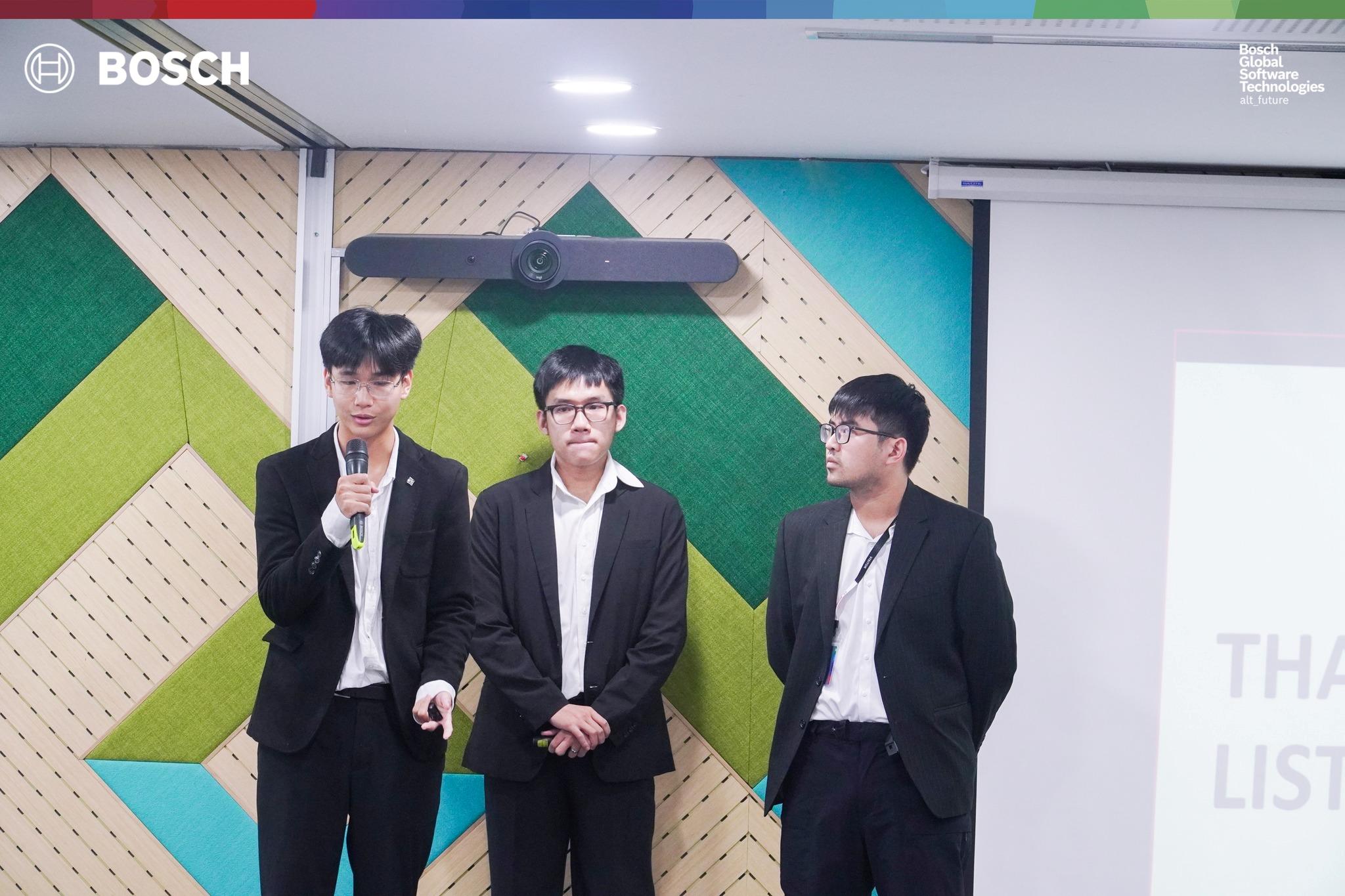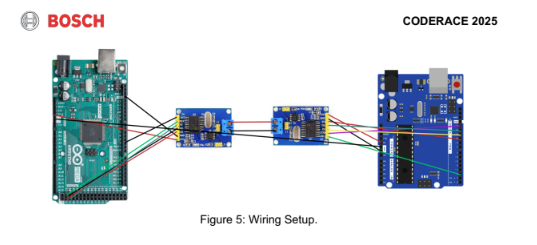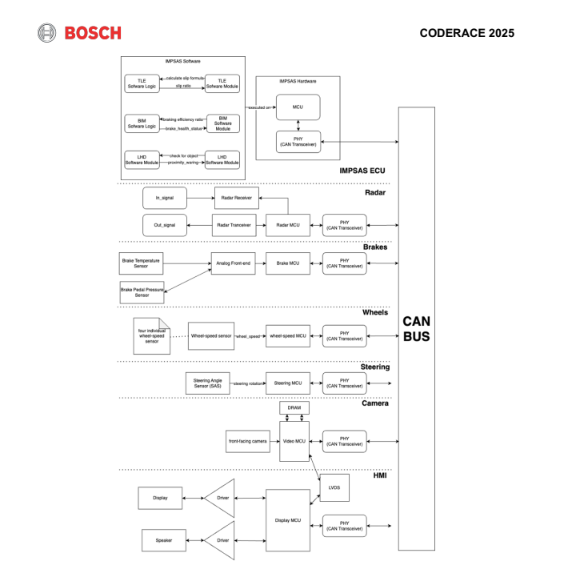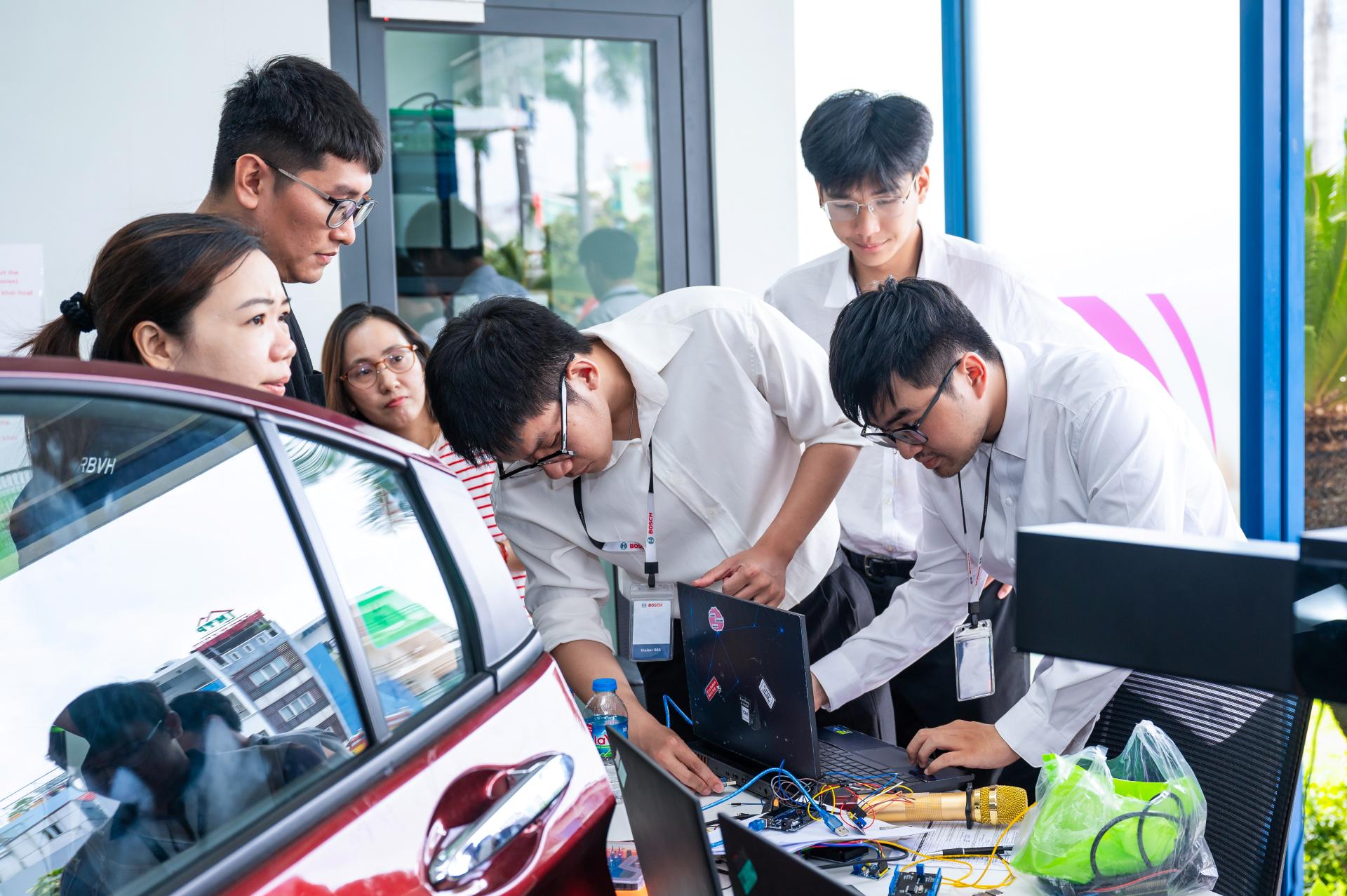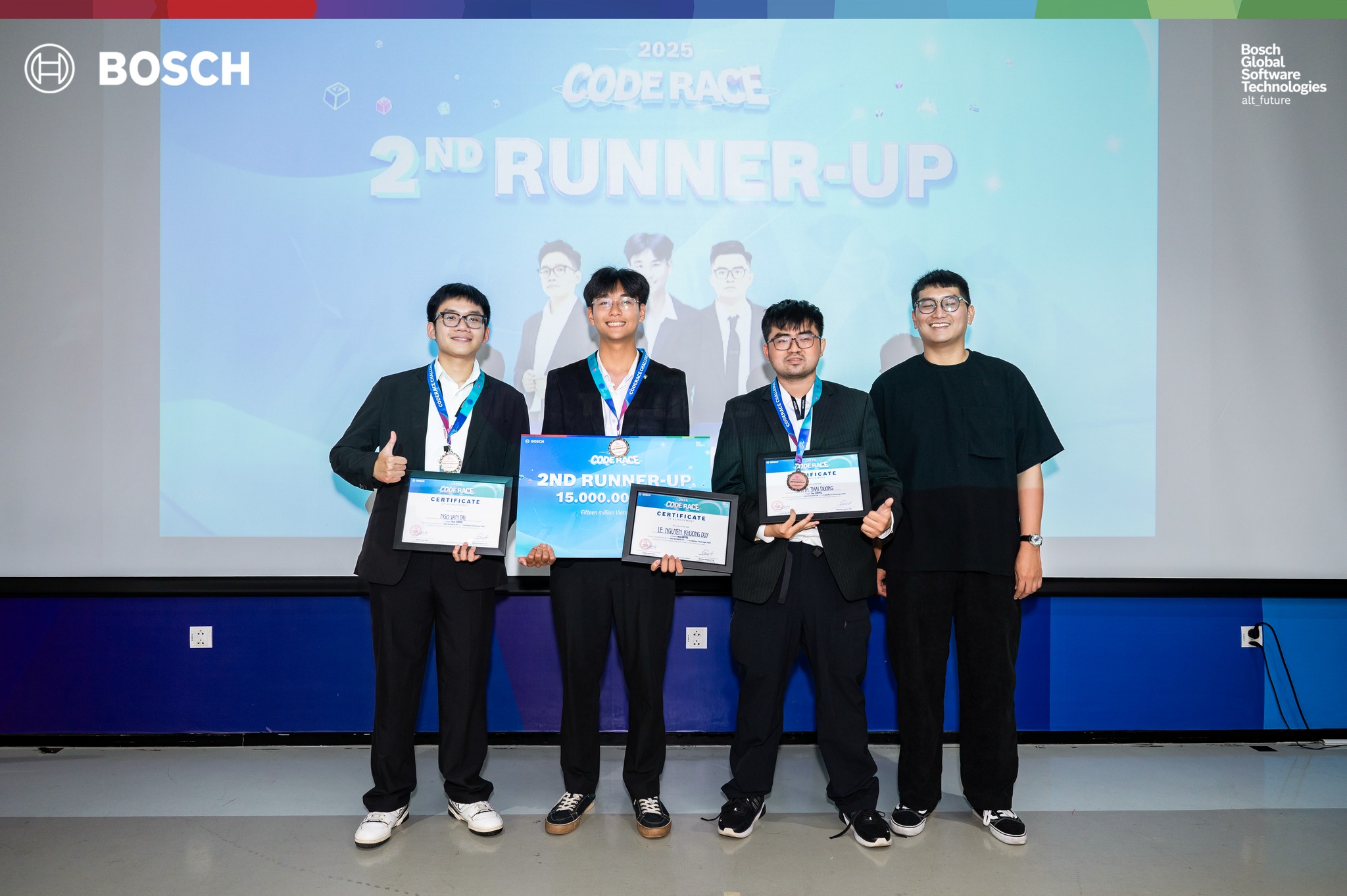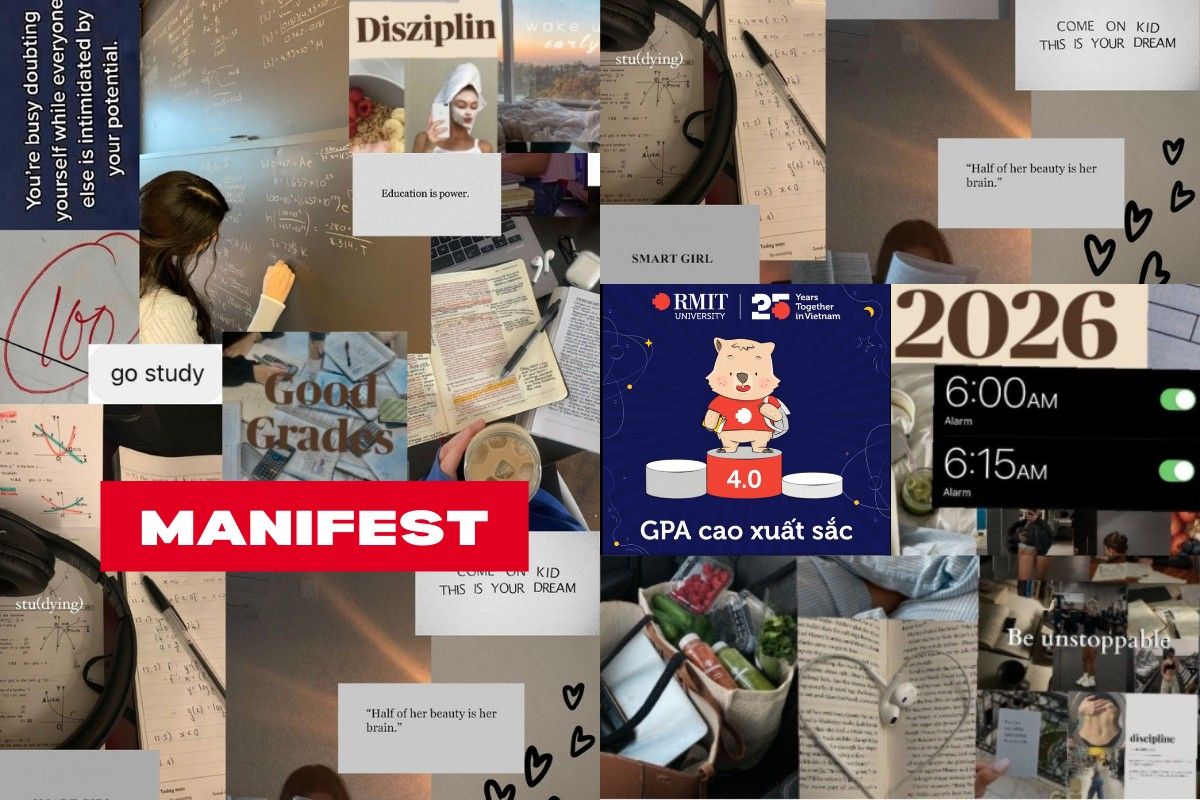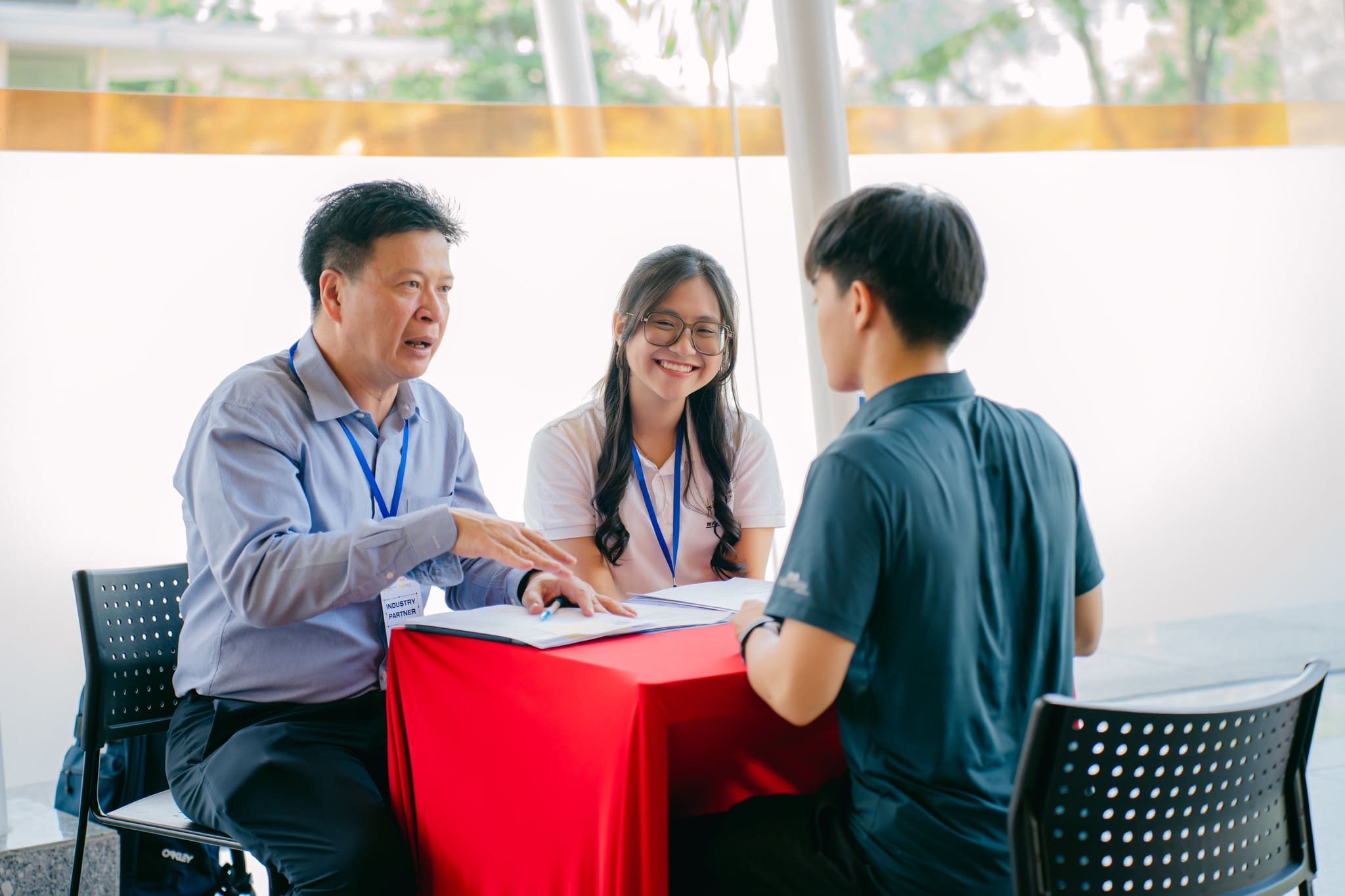Their 2nd Runner-Up finish felt like a victory, but the deeper reward came in the confidence they carried away from the event. “We learned how to dive in and figure things out,” said Duy. “That experience showed us that uncertainty is not a barrier. It can actually push you to innovate faster than you thought possible.”
The hackathon transformed how they saw learning itself. Challenges no longer appeared as obstacles. Instead, they became opportunities to adapt and grow. The team proved to themselves that they could step into any unfamiliar field and find a way forward.
Looking back, the team admitted there were things they could have done differently. “We should have spent more time on the ideation phase,” the team reflected. “IMPSAS had strong potential, but complications meant we couldn’t push it as far as we wanted. In the end, our code could only go as far as the idea allowed.” They also recognised the need to better understand the CAN signals before jumping into development.
Yet those setbacks became stepping stones. The hackathon gave them more than a prize; it gave them the confidence to take on any challenge with adaptability as their guide. “We want to keep this momentum,” Tai said. “The hackathon showed us that adaptability is our most valuable skill. Whatever comes next, we know we can learn, adjust, and innovate.”
At RMIT, students are encouraged to take risks and try new things. As Duong shared, “That freedom gave us the courage to step into Code Race without hesitation.” In just a few days, the team had to master unfamiliar technologies, pushing beyond their limits. “The biggest growth happens when you step outside your comfort zone,” Duong reflected. With mentors’ guidance and the support of the RMIT community, challenges became opportunities, and Code Race became more than a competition.

